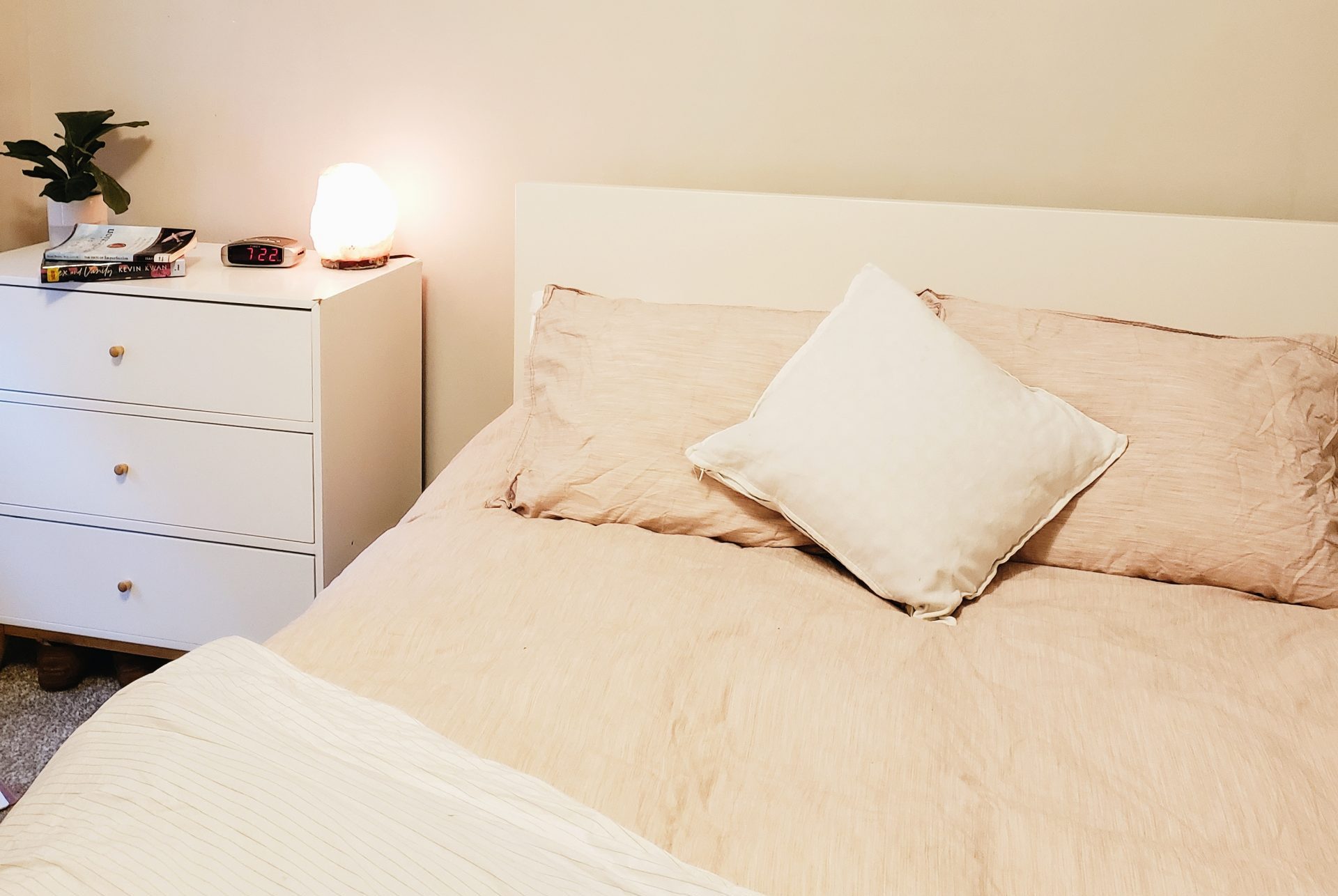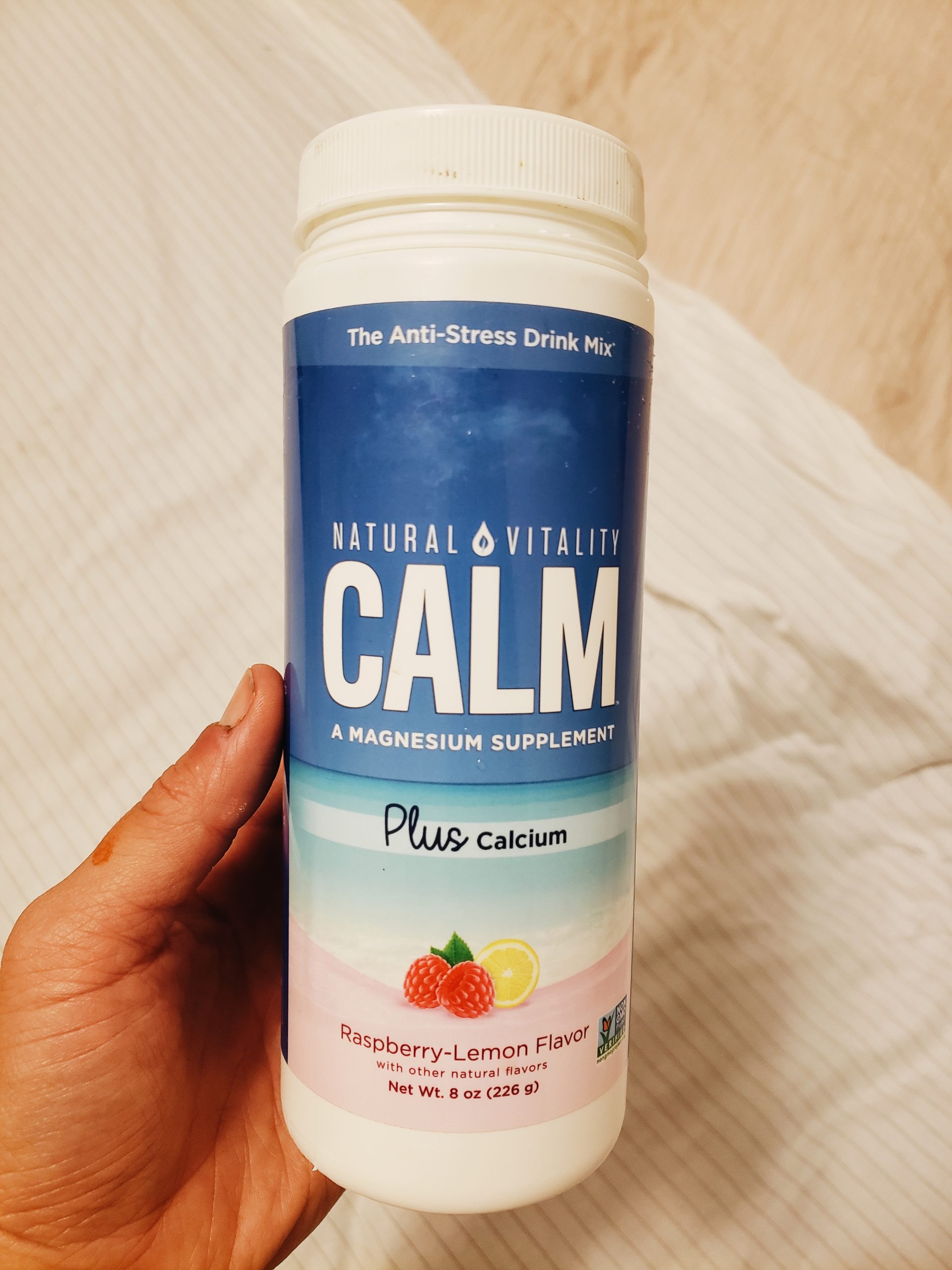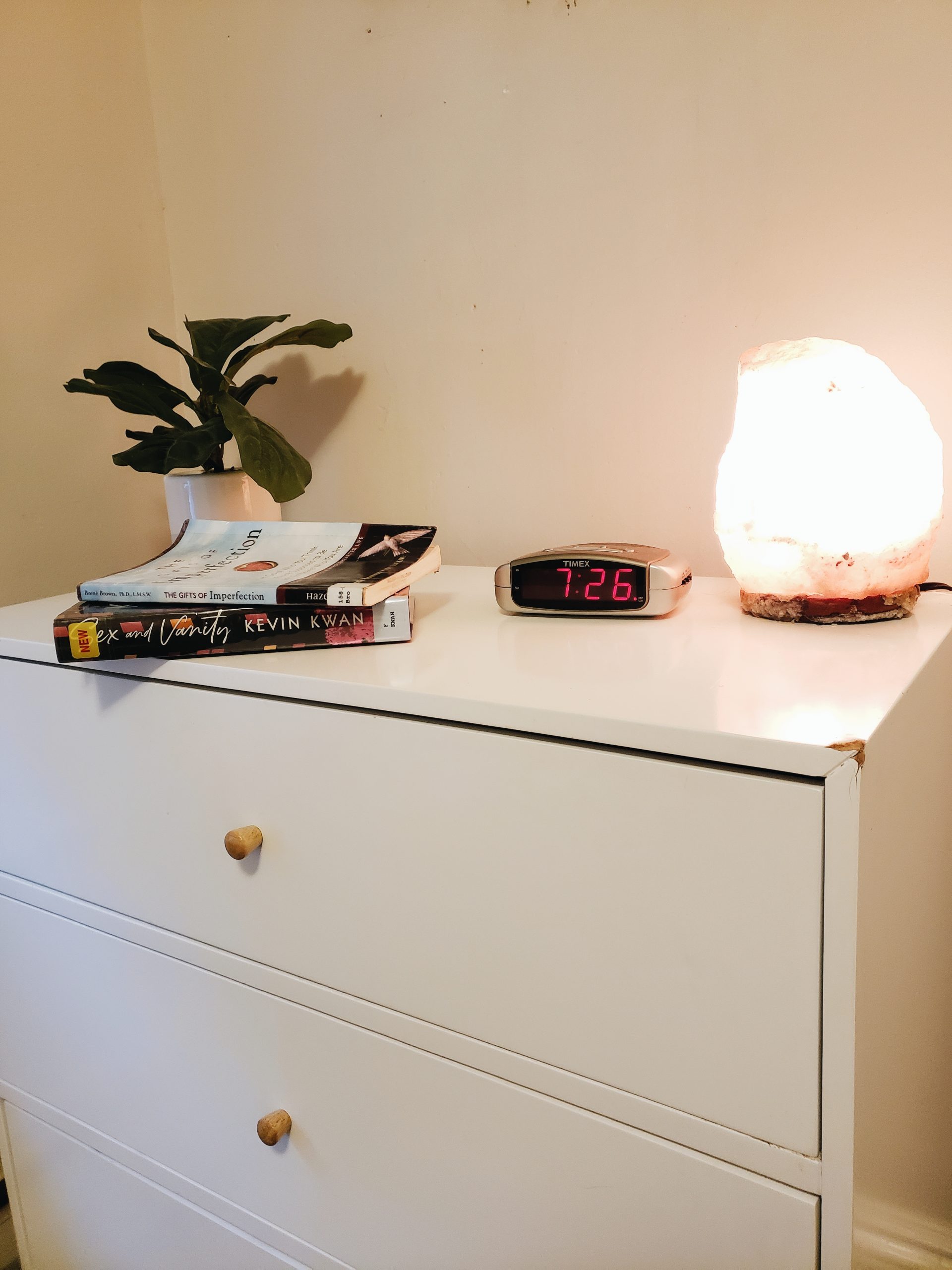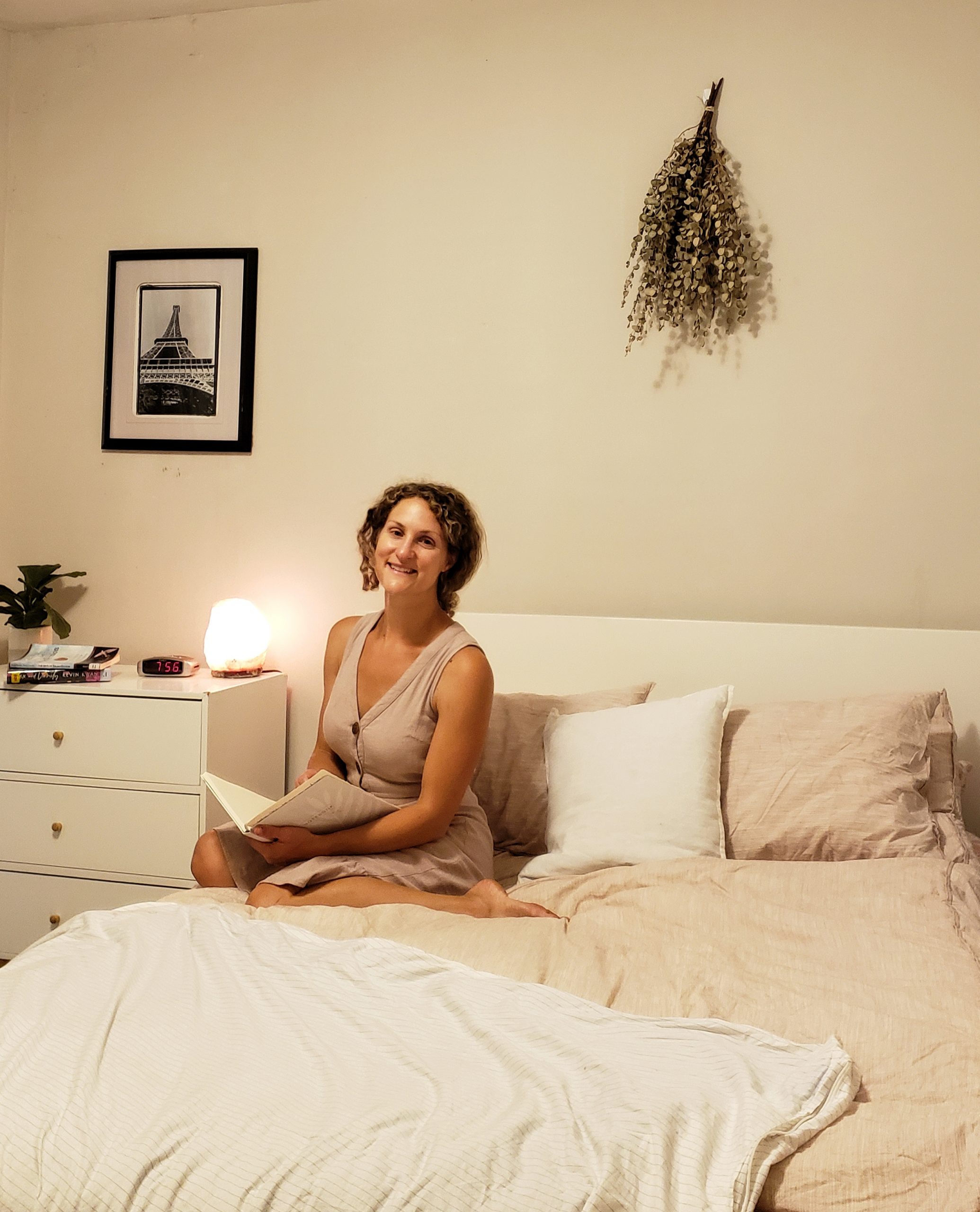
I know I’m not alone when it comes to having trouble sleeping. I have friends and family members who report difficulty falling asleep or staying asleep through the night. Others seem to wake up each morning exhausted. It is reported that a third of American adults are not getting adequate sleep. Since I’m not alone in my quest for rest, I figured I would share a few simple steps toward better sleep!
1. After-dinner drinks
One way I’m working to fight fatigue is through vitamins and supplements. One of my favorite supplements is magnesium, not only because it seems to help me relax, but also because it is easy to consume. Currently, I am adding a teaspoon to seltzer water after dinner, and in the winter I add it to a raspberry herbal tea — complete with honey! While studies have not proven magnesium to assist with sleep, the ritual helps me. Another simple way to promote sleep is to try honey on a spoon with a pinch of salt.

2. Make your bedroom cell-phone free
When my phone recently died and I went a week without it, I realized the positive impact it had on my bedtime routine and general health. Once I got my new phone, I vowed to have healthier phone habits. In order to avoid scrolling mindlessly in bed (as I have done until 2 a.m. before — ugh), I now leave my phone charging in my kitchen. I purchased a $3 digital clock from Goodwill last January and have used that as an alarm clock since. (But, let’s be real: My true alarm clock is 3 feet tall, has blonde hair, and is adorable.)

3. Set the scene
Creating a space that is restful to you is important. It always feels better to me to have my bedroom free of excess laundry (that one time a week). Try to replace your late-night screen time with a new habit. Get that book you’ve been meaning to read, purchase a journal, set up a yoga mat for stretching or an acupressure mat to promote better sleep. Make your bedroom a place of rest, and it will help the process of relaxing before bed. Because blue light can trick our minds into producing less melatonin than necessary, it is helpful to not only put down your cellphone before bed but to dim the lights. In our house, once we get the kids to bed, we turn off all the ceiling lights and use lamps instead. Once I go to bed, I use a Himalayan salt lamp as my bedside light.
4. Weighted blankets
We call this “the hug” in our house, because that’s exactly what it feels like. A light hug. A quick search online can help you determine weight recommendations for your body — I prefer a 12-pound blanket. Here you can see it at the foot of my bed, in a white case. It looks exactly like a blanket but with weighted beads inside instead of feathers. I often place it on my lower half or legs at night when I sleep.

5. Write it down (aka brain dumping)
It always seems so tempting to scroll Instagram one last time before bed. But I started to realize I was spending some of my precious free time checking out what other people had done that day, instead of reflecting on my own day. Now I try to relax before bedtime and even jot down on paper things that had an impression on me (or left a painful mark). I read about brain dumping once and have since purposefully left a notepad and pen near my bed for those nights I need to jot down my stressors. It’s been especially helpful for me to write down a few to-dos for the following day — I know that in that moment before bed there is little I can do to achieve those goals, so the best thing I can do is sleep so I will be able to tackle them with a well-rested body and mind the next day. Reflect. Relax. Rest.
6. Read to relax
Find a book to read. I have been reading before bed to calm my mind for years. Because I love reading so much and don’t have much time to read during the day, bedtime is my free reading time. It helps me to calm my mind and focus (and sometimes even puts me to sleep!). It is easier to be motivated to put away the phone if I have a good book going. I alternate between fiction and non-fiction, and both help me to slow down and relax before bed.












